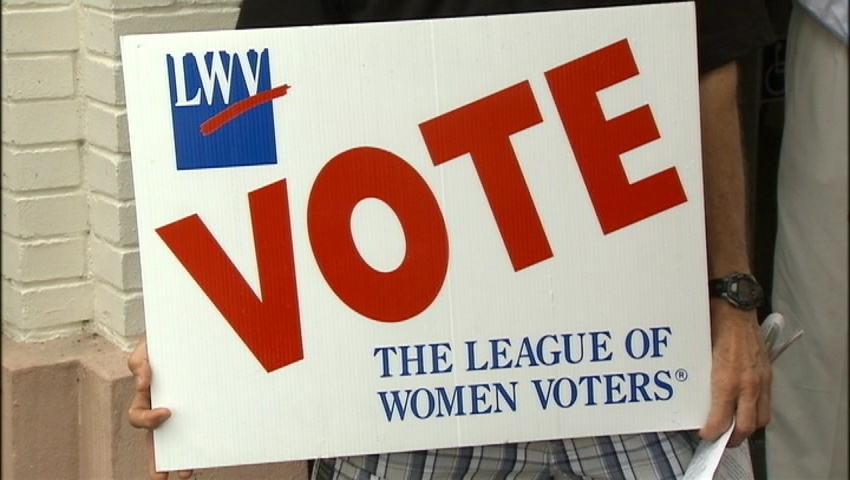Florida groups relaunch voter registration drives, but state digs in on voter purge

Florida's ever-escalating voting wars (see here and here) have seen two big developments recently.
First: Last week, a judge blocked most of Florida's aggressive new restrictions on how groups can register voters. In his opinion, U.S. District Judge Robert Hinkle argued in his opinion that the time limits and penalties thrust onto groups like the League of Women Voters, which ultimately caused them to famously shut down their voter registration drive in the state, was unconstitutional:
Together speech and voting are constitutional rights of special significance; they are the rights most protective of all others, joined in this respect by the ability to vindicate one’s rights in a federal court. … [W]hen a plaintiff loses an opportunity to register a voter, the opportunity is gone forever. And allowing responsible organizations to conduct voter-registration drives—thus making it easier for citizens to register and vote—promotes democracy.
That decision led the League and Rock the Vote to announce this week that they were resuming their voter registration drives in the battleground state.
As St. Petersburg League of Women Voters President Darden Rice told The Tampa Bay Times:
We're going to dust off our clip boards and pick up the forms and get into the business of registering people to vote. Registering citizens to vote is part of our core mission, and we're excited to get back to work.
But on another voting front -- Florida's decision to flag and possibly purge some 182,000 voters who supposedly aren't citizens -- Gov. Rick Scott (R) is digging in, despite possible legal repercussions.
Last week, the Department of Justice instructed Florida to halt a plan using error-prone databases to identify non-citizens on the voting rolls, on the grounds that it violated two federal laws -- the National Voter Registration Act and the Voting Rights Act.
As Facing South reported, the federal voter registration law passed in 1993 prohibits states from making major changes to its voter lists within 90 days of a federal election, precisely because legitimate voters could be wrongfully removed and not have enough time to correct the mistake. The Voting Rights Act of 1965 prevents certain states from making major voting changes without having them pre-cleared by the Department of Justice.
After the DOJ sent its letter [pdf] to Florida, most counties halted the purging process. (Some counties like Palm Beach had already refused to comply because of errors they found in the data, which they said was "not credible.")
But now, Florida is fighting back -- sending a sharply worded letter [pdf] that all but dares DOJ to sue them.
In the letter, Gov. Scott's hand-picked secretary of state, fellow Republican Ken Detzner, argues that the National Voter Registration Act's ban on voter purges within 90 days of elections only applies to purges of once-eligible citizens who become ineligible through criminal conviction, death or mental incompetence -- not voters who were never eligible in the first place.
Detzner's argument has two flaws: First, the entire reason for the backlash against Florida's purge is that many clearly eligible voters, like 91-year-old U.S. veteran Bill Internicola, had been wrongfully flagged for removal. Second, while the passage in the Act referring to the 90-day prohibition appears alongside references to moving and other common registration issues, it clearly states:
A State shall complete, not later than 90 days prior to the date of a primary or general election for Federal office, any program the purpose of which is to systematically remove the names of ineligible voters from the official lists of eligible voters.
Detzner also claims that Florida's policy of removing non-citizens was already approved by the Justice Department, meaning that it doesn't run afoul of the Voting Rights Act.
But the question is whether the DOJ's earlier approval of the policy of verifying voters covers the new ways Florida is using to carry it out -- specifically, relying on a motor-vehicle database that doesn't have up-to-date citizenship information.
Voting rights groups and progressives argue the purge is aimed at disenfranchising Latinos and Haitians, the state's largest immigrant groups who also tend to vote Democratic -- and the threatening letters sent to flagged voters alone could have a chilling effect.
Gov. Scott insists that "not a single eligible voter as far as I know has been removed from the voter rolls."
But for all the time and money spent on the purge, few ineligible voters have been found, either: Of those flagged in Miami-Dade County, which has among the state's largest immigrant communities, 500 have been found to be lawful citizens. Thirteen noncitizens have been found, but only two of those may have voted.
Tags
Chris Kromm
Chris Kromm is executive director of the Institute for Southern Studies and publisher of the Institute's online magazine, Facing South.
